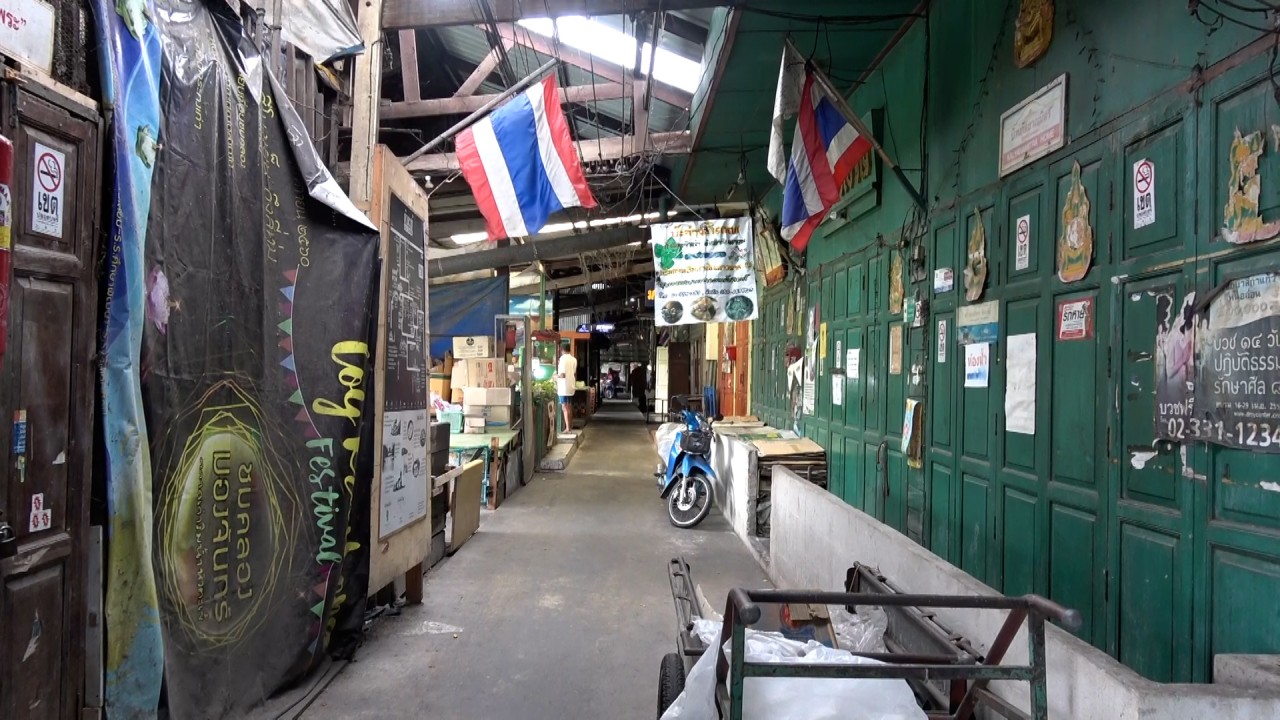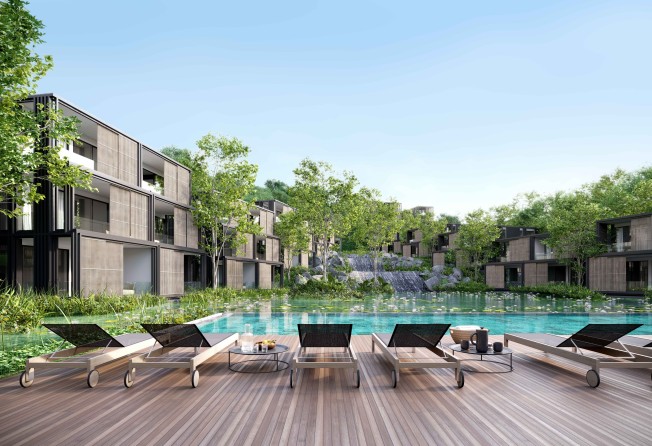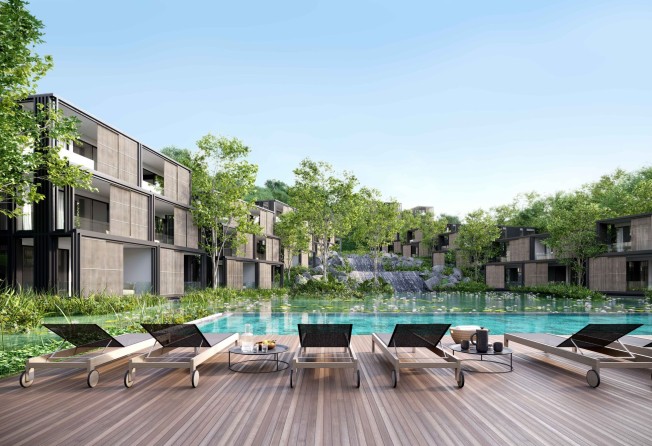
01:03
Once-bustling Bangkok market deserted as Thailand struggles with its worst wave of Covid-19

With the Omicron variant of Covid-19 forcing Thailand to once again tighten entry rules for foreign visitors, real estate firms in the kingdom are relying on remote purchases by Chinese buyers to prop up the pandemic-battered market.
Before the virus emerged, Thailand was the largest destination for the Chinese people looking for overseas property as an investment or a sun-kissed second home.
In 2019, 13,232 condominiums were sold to foreign buyers, of which 55 per cent were Chinese, according to the Real Estate Information Centre.
But since early 2020 they have remained inside their country’s Covid-19 cocoon as the Chinese government showed no signs of easing its tough quarantine rules for returning nationals.
Despite the tight restrictions on overseas travel, agents across Thailand’s three biggest markets – Pattaya’s Chonburi, Phuket and Bangkok – said interest has returned from mainland customers, who viewed properties virtually or bought through local brokers and affiliates that manage assets on their behalf.
Sales worth around US$350 million were made in the first half of this year alone to Chinese buyers, official data showed, nearly two-thirds of the total sold to foreigners.
Thailand last week suspended its quarantine-free entry scheme amid concerns over the potential spread of the Omicron variant by foreign arrivals.
Experts say the new curbs will likely deter Western buyers for months to come and the options of strong rental returns or flipping properties for quick profit diminish as the global health crisis drags on.
But sales at developments aimed specifically at Chinese buyers – from cheap city condos to luxury villas and retirement villages – have continued apace.
“This year we have branched out to second and third tier cities in China,” said Hachi Yin, CEO and founder of Utopia Corporation.
Utopia, whose villas cost up to US$625,000, promotes its Phuket projects across China with sales seminars which also include live-streaming of the island’s beaches and amenities.
“Previously people in these cities never thought about investment overseas, or even travelling abroad. Now because of the Covid situation, mindsets are changing,” he said, adding that the potential for the Chinese market is only just beginning to be seen.
“Don’t forget, only 10-15 per cent of Chinese currently have a passport.”
As China’s housing market undergoes a shake-up following a liquidity crisis at leading developers including Evergrande, Thai property agents and sellers are hoping to soak up any capital flight over coming months.
But their wait for Chinese money may continue until at least deep into next year as Beijing firmly sticks to the strategy of preventing imported virus cases.
Analysts warned that developments relying on Chinese money could also be in for a disappointment after China revised down its economic growth rate for 2020 to 2.2 per cent.
Pavida Pananond, a professor of international business at Bangkok’s Thammasat University, said bargain sales to Chinese buyers from people looking to exit Thailand quickly may patch up some holes in the order book.
“But due to China’s continued regulation of outward FDI flows, particularly into real estate, they are unlikely to be the panacea for Thailand’s real estate sector,” she added.
But despite the economic uncertainty, new tower blocks have sprung up in the beach resort town of Pattaya.
Agents said Chinese buyers have been snapping up bargains throughout the pandemic, especially one or two-bed condos which go for between US$60,000-US$150,000.
People in China can in theory only move US$50,000 a year overseas, although a well-oiled shadow financial machine means cash pours out through proxies allowing individuals and syndicates to build large Thai property portfolios.
Pattaya property agents, who are tuned into Chinese state policy and economic conditions, said the game would soon change.

“We are hearing that China is going to suppress real estate prices and levy higher property taxes at home. That may encourage people to move money overseas,” said a Pattaya-based Chinese agent, requesting anonymity.
“On the other hand the pandemic has hit people’s cash flow … and because Chinese people cannot travel, it is unreasonable to expect them to rejuvenate the Thai market in the short-term.”
As the market for international travel remains uncertain, Costa Savva, co-founder of the property portal Lazudi, said some Thai developers have doubled down on tech – including virtual viewings, remote purchases and cryptocurrency payments – to attract foreign buyers.
“If mainland China and Hong Kong lift their long quarantine requirements then we could see things really warm up in Thailand,” he said.
“But my expectations are that it won’t be an instant flood. It’s more likely to be slow and steady growth, taking up to two years to return to pre-pandemic numbers.”